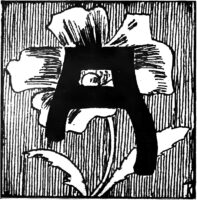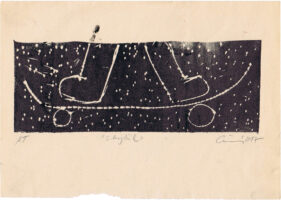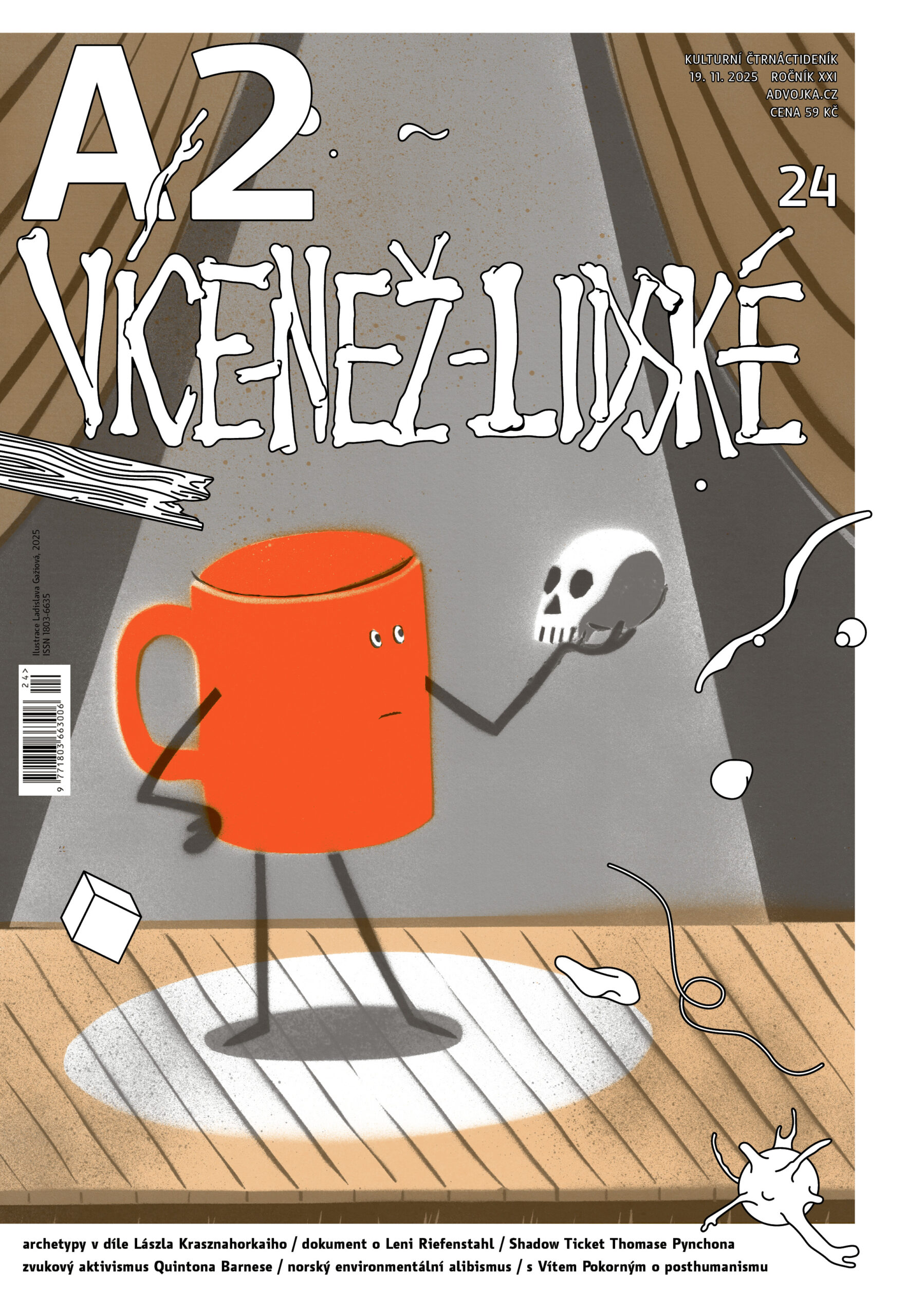How hate was tempered
Squares of hatred in society of unequality
What lesson can we take away from the anti-immigrant wave of the past two years? Eva Svobodová has researched Islamophobic demonstrations. Ondřej Slačálek has analyzed the statements of their leaders. In a jointly-written retrospective essay they note the most significant features.
It was a bit like a porn or reality show – the hatred could be viewed live and boundlessly dosed. The willing showmen soon became stars of the headlines and both their virtual and actual crowd got surrounded by various recording devices that recorded multiple evidence of the ways in which hate pours out.
We found ourselves in the role of fascinated viewers. Some perhaps with a certain sadness that a radical oppositional movement has finally emerged and stems from the bottom, contains a democratic ethos and stands in radical opposition to the elites – but that we need to stand against it because it brutally attacks the most helpless ones and leads to limitations of freedoms. But most of all everyone expressed a tense expectation: So this is the fascism we are familiar with from books and films? Or is it some new authoritarianism we cannot yet well describe. Is it going to stay? Is it going to shake up Czech society and take hold of affairs?
We now know that the movement has not succeeded. Fear of Muslims managed to convince a large majority of the society to refuse refugees in polls, but only hundreds, exceptionally, during the largest events, thousands of people showed up in squares. The cluster of people who attempted to lead this crowd fell apart into a mess of groups that hate each other and their list reminds of the famous scene from Life of Brian. Most of all, however, they were overtaken by a line of established politicians, beginning with the president and not ending with the minister of the interior who came up with a clear message: Why go to an apprentice if you can consult with an expert?
The unusually strong tidal wave of Islamophobia was partially washed away from squares after a year and half. The attitudes on which it was based remain and it seems that they can be activated by the tiniest impulse of which there probably won’t be a shortage. Most of all we can ask: did the meetings convey something essential about the society we live in? Did we notice anything in the Islamophobic movement that represents a portrait of our society, something we wanted to know but didn’t know how to ask about it?
Antiracism as privilege?
Some comparison can be useful. There were times that the “unadaptable” Roma played the part of the dangerous Muslims. The protests that took place in the Šluknov area in 2011 or in Duchcov two years later were later presented along with a question whether the real reason is not rather the dismal situation in the impoverished regions of Northern Bohemia.
Following the attack against the Charlie Hebdo office in Paris, the front pages of newspapers were filled with articles about waves of migrants pouring from the East and about nonintegrated young Muslim men in the suburbs of western European towns. The end of Europe seemed within reach. The demonstrations following the attack launched the mobilization of the movement that was organizing around the Facebook page called Islám v ČR nechceme (We Don't Want Islam in the Czech Republic). Unlike the antiRoma protests, however, the antiislamic demonstrations were nationwide and centered predominantly on Prague.
There probably are no quantitative data that would show who exactly were the people on the squares attempting to save Europe, what their income or education level was; whether they had permanent employment or were poor, working precarious jobs. At the demonstrations, you would encounter a single mother, a well-to-do IT expert spending six-hours a day playing computer games, an impoverished postal worker whose entrepreneurial activities failed in the ‘90s, a rentier, a welder, a university professor. Even some well-situated Islamophobes describe themselves as marginalized and excluded. For example, one mathematical analyst stated in an interview that unlike non-governmental organizations, ordinary people like him have no space to express their opinions.
We cannot forget David Graeber who in his essay Army of altruists from the book Revolutions in reverse (2011) states that a factory worker can hold a certain hope that his daughter will become a manager or a multimillionaire, but he is positive that she will never be a literary critic. Babiš or Trump tell these people that essentially anyone can come to a great fortune and power. Antiracists with humanity degrees, throwing discourse in every sentence, indirectly state that certain societal roles and perhaps even antiracist attitudes are available only if you know the right magic formulas.
Classless class
The antiislam movement and one of its spokespersons, “rightwing sociologist” Peter Hampl accomplished a master piece: reinserting class into the debate without discussing income differences. The new approach to the class struggle can become part of the ideology of the party named Strana svobodných občanů (Free Citizens Party; right-libertarian eurosceptic political party) or other market fundamentalists for it divides those who make their living by “productive work” and those who “parasite” on them through the redistribution of wealth. The opponents in such a class struggle are not the wealthy (they are simply the “successful ”ones) but rather those with similar income levels as the ones “productively” working, only from nongovernmental organizations and universities.
Such an attitude toward class-based divisions naturally leads to the preservation of the principle of merit, which can sometimes have a masochistic shape. During the interviews, one woman who was left to fend for herself as a single mother after her partner abandoned her twenty years ago when she was nineteen, felt the need to justify herself by saying that by paying the income tax, she certainly paid back all the government social support she once received. When one speaker turned attention to the convicted and those on welfare to appeal on them to join the antimuslim movement, his inclusive argument was augmented by a remark to “pay your debt toward the society.”
Some of the left approaches the issue with another class-based view: that is when it attempts to understand it as a voice of the oppressed classes that is not really racist, only frustrated and aiming at the wrong targets. As if it was enough to embrace them and gently talk to them, or recode and reorient them toward the “right aims.” But doesn’t such an approach turn them into incapable children and doesn’t it underestimate the power with which they hold onto their ideas?
A similar attitude can be possibly valid in the case of the antiRoma protests in the Šluknov region where it was possible to clearly determine the regional and social injustices that were falling on the people in the region. In addition, the Roma were present in the picture and their reflection, albeit absurdly magnified, had some proportions. In the case of Islamophobia, the wave of hatred was nationwide. Given that there is only a small number of Muslims living in the Czech Republic, the real political enemies are rather politicians, journalists, non-governmental organizations, and EU. Islam became an imaginary apocalyptical threat, a natural disaster, an end of civilization. The fight concerns everything – even if everything is relatively abstract and distant and mainly takes a shape of references to the unspecified (and more the less enlarged) images of criminality in the streets of western European towns.
Return of the civic society?
We had talked about the need for a live and active civic society until it eventually appeared. Islamophobes were mobilizing from the bottom and their activities contained a true democratic pathos. The streets were filled with those who were there for the first time since 1989 or for the first time ever. Many of those were discovering the world of active, physical partaking in public events and this world was taking them in. It was this common participation and involvement, complemented with specific emotions and experienced solidarity that cemented their conviction that it is them who express the society’s interest; not the corrupt politicians backed up by Brussels, political correctness or non-governmental organizations that everyone on the squares was blaming for forsaking people’s will.
The masses on the streets hated non-governmental organizations and their activists perhaps even more than politicians. Media for alleged distortions, for the slashed effect between the reality of the square and the media-induced picture, for writing something else than what “ninety percent of people think.” As a result of such informing that provoked some demonstrators to aggression toward journalists, the crowds on squares rarely joined in understanding but they did join in alienation.
As we have seen „Sluníčkáři“ (moniker for non governmental activists) were hated for anything, beginning with an alleged moral superiority to an idea that they break up the natural world order. Whether or not they were denying the natural world order with the illusion that aid and solidarity needs to come first or by their “parasite” existence supported by grants.
In 2008 sociologist Ondřej Císař published book Politický aktivismus v ČR (Political activism in the Czech Republic), where he showed that classical, participatory activism based on participation of large groups of population in social movements was in the Czech Republic (like in other countries) largely forced out by “transactional” activism based on foreign funding and professional activism of large nongovernmental organizations. According to Císař, this did not present a significant problem. Unlike other authors who described this changed initiatives as tamed and noted a loss of original radicalism, he showed that transactional activism could defend ideas and cases that were not entirely popular in a given society (a telling examples are feminists loathed by the local society but supported by European Union).
Despite Císař’s partially convincing analysis, it seems that it is a bit like cheering the possibility to replace a leg with a prosthetic device. To be sure, non-governmental organizations fulfilled some functions of social movements, but they were not incorporated in the society to the same extent and so could not fulfill the other roles, including signaling existing issues, passing tactics and tools that various social groups could utilize to express and defend own interests but also pride in defending these interests.
Imitation of the people
Transactional activism has created alienation that some ideologues of Islamophobic crisis skillfully utilized. They present nongovernmental organizations and, in Peter Hampl's words "imitation of people (so called civic society)" – according to him, the ruling class creates the imitation as its arch enemy and a source of what they call society's madness. It is no longer the Jewish conspiracy that rules the world through their conspiratorial centers, it is now only the evil neomarxist ideology spread through the parallel world of non-governmental organizations.
Perhaps even more than the local gatherings against the Roma, it is worth comparing the Islamophobic protests with the large statewide mobilizations that were related to the image of the democratic revolution of 1989, which they attempted to, at least partially, emulate, join its pathos and fight for its spirit. Let's note the three most crucial of such protests: the mobilization against the oppositional deal (Thank you, leave now!; and the so-called TV crisis); the movement against the American radar and the protests against the Nečas government.
All the three movements positioned people against the existing power; people who seemingly spoke directly, through their signatures under the petitions or through the numbers in the polls and whose voices were to materialize in meetings in the squares. The movements situated themselves against any actual hegemony – whether this was the hegemony of ideas about the standard way of doing politics, ideas about the unavoidability of the alliance with the USA, or the collapsing hegemony of neoliberalism. They attempted to spin off some alternative image that would be considered as shared and majoritarian – whether this was the image of full squares as alternative source of legitimacy against the estranged parties (at the time of fights against the oppositional deal), the image of peace and national sovereignty (in the case of the movement against the radar), or the image of society based on solidarity (which, however, the movement against the Nečas government did not succeed in making very specific). All these three movements carried a strong antipolitical appeal.
Animated numbers
The Islamophobic protest is, in some ways, structurally similar to the movement against the American radar (even if the great majority of the radar opponents may think of this as an insult since they tend to overlap with opponents of Islamophobes). This movement too incorporates a strong antipolitical appeal; an idea that it posits itself against the hegemonic ideology (in this case antiracist hegemony, and, from the Islamophobes viewpoint excessively antiracist and powerful, as evidenced by the hostile descriptor political correctness). This movement too expresses the opinion of the majority as voiced in the polls, where the numbers from the polls are to be somehow animated in the squares. But the political class, in contrast to the disagreement over the radar, overall accepts and expresses this majority opinion, even though not through as radical phrases as the Islamophobic movement would probably wish. This movement too mobilizes against the presumed hegemony of antiracism by a past and sedimented hegemony of national sovereignty and complements it with a presumed (anti)hegemony of an idea of a civilization conflict.
In the case of both Islamophobes and the antiradar movement, the main arch enemy was outside power, whether it concerned Bush's Washington or Brussels in the second case. Part of the rhetoric of both movements was national sovereignty as a source of security in an uncertain world. In the first case, it was supposed to protect against the superpower games with weapons of mass destruction ("my aim is not to be an aim"), in the second case, it was supposed to prevent entry to refugees and demonically portrayed Islam of the apocalyptically described cities of western Europe.
If, for Islamophobes, as probably the first major social movement since 1989, Western Europe did not represent the ideal and source of norms, but rather a scarecrow, it were the powerful and sovereign states that represented such ideals – one interviewee specifically mentioned Japan, Switzerland, even Saudi Arabia. The clear boundaries whose renovation the movement called for were not only the practical embankments against the refugees but also a source of certainty, order and symbolic opposite of the liberal chaos in which it is impossible to control own life's conditions on both the personal and collective levels.
Our Women
Protection of women became one of the most crucial issues for the movement. Even as the movement seeks to present itself as defending liberal values, its relationship toward women's rights is ambiguous. The rights enjoyed by Czech, respectively European women, are not considered to be the result of a long struggle but rather an essence of Europeanism that as if was essentially liberal.
Analogically, the poor treatment of women is indelibly inscribed not only onto the Quran but onto every Muslim soul. According to this view, every Islamic revolution in Iran and women's oppression connected with it, evidenced by mandatory veiling, appears not as a result of a political struggle in the Islamic world and victory of one party over another, but as a return to the natural state. The Muslim woman is always the victim, even if she lives in liberal democracy and freely chooses the veil. Genuine solidarity, however, is missing. On the other hand, her image becomes the symbol of an apocalyptical threat. Covered in niqab or burqa, she turns into a beast without a human face, invoking fear.
Czech women, on the other hand, need to be protected. Rather than equal individuals, they are considered to be a national treasure, like Czech culture or National Theatre. Like Muslim women, they become objects rather than subjects; a national property. Many women joined the movement and it is not an overstatement to claim that for many of them it could have been empowerment. But the title, Angry Mothers, suggests that it is motherhood that legitimizes a woman to enter politics and public space. Accepting the traditional hierarchy in which woman’s natural place is right behind man positions women to only speak to "women's issues." The rule that the public space belongs to men and private space to women remains unchanged. Men can claim the entire world, women only their bodies.
Sexual violence, so often downplayed in one's own society, becomes a political issue. Rape and other gender-based violence is only ascribed to Muslims. Putting the word rape in the search box of Parlamentní listy (Czech yellow press website), which can be considered to be an allied medium of the movement, most articles concern immigrants. As if Czech men did not commit sexual assaults. One respondent expressed his anger over the mass fanaticism that can be witnessed in Mecca and that, allegedly, Muslims are born with. When asked if he does not notice similar emotions in, say, fans of the Sparta football club when walking at Letná, he said: “of course, but a Sparta fan does not beat his wife once he returns home.”
It is necessary to prevent the raping of our women, which will be one of the characteristic features of the Islamic invasion of Europe. This can be done by punishing those who let the Trojan horse in Europe. A whole number of women activists who oppose this movement has faced threats of rape. Whether this was to teach them a lesson (“for when you will be then raped by hordes of Muslims”), or treason (“if only you too were raped for at least twenty hours”), or, on the contrary, initiation (“I will fuck “sluníčkářství” out of your brain”). The violence, which is logically missing from this rhetoric and is also unfortunately absent from the majority of media, is that which is committed against migrant women. The sexual assault they experience during their travels is marginalized, just as Islamophobes do not remind us of the European women raped by European men.
Women’s rights, derived from the Universal Declaration of Human Rights, become privilege only for “our women.” There is a huge abyss between the Muslim and the European women: let them wear scarves where they are, most important is that it does not arrive here. Such an attitude reveals that the rights that the movement professes to defend are not universal rights for everyone, but rather an expression of European superiority.
To whom the greatest fuck off?
Perhaps we did not put our question – what knowledge about Czech society can we take from the analysis of the protests – well. The reason is that this plays the game of the Islamophobic movement and its leaders; i.e. based on the idea that they are the voice of the society. The demonstrations comprised of several thousands of people at the most hardly evidence this.
Moreover – society does not have any unanimous base to which it would be necessary and possible to get at through an analysis of individual features. It is more likely a rather changing sequence of answers to a variety of questions; answering them also depends on how they are formulated – and by whom and in what context. If the majority of the society responded to a question about accepting refugees with a disagreement or even aggression, a rather poor response would be to create an image of a “bad and racist majority” against which it is necessary to delineate with the goal of feeling morally superior. It is exactly this response that can attach racism to the majority as a lasting characteristics. Instead, it is necessary to work on asking fair questions – and also own authenticity whose first precondition is absence of arrogance and superiority and open-mindedness.
Last summer, the Czech group PSH released a protest song Fuck Off against the racist and Islamophobic sentiments. In the flood of the hatred, the clear attitude of the rappers must have felt to many like living water. But Fuck Off was not addressed only to Konvička, Zeman, or Brichta. Orion sent Fuck Off also to “all those who did not try; fuck off to all who did not do what they dreamed,” as if bad luck was a reason to denounce. According to the authors, it is the “old lady” who prepares meals from food purchased at sales and feels she lost control over her life who deserves the ridicule most. It is these people whose “greyness” needs to be disproved. It is them who need to be reminded that “the world are colors.” Most likely, they don’t know this.
If antiracism should become decoration of the young and successful and the “moral” justification of their superiority over the losers, then it will play into the hands of the various Hampls. Even without any cheap “redirecting of anger” and without hugging racists as lost brothers in a class struggle who only need to be explained to aim at the correct targets, we can possibly say that similar antiracism is not only shooting its own foot but also leaves bad taste of a manifested superiority of young and successful city people. So possibly the strongest fuck off can be sent to those who did not attempt to connect antiracism with social issues and collective struggle for own rights. To all those who connected it, instead, with disdain for those who did not succeed.
To laugh at a poor and fearful “old lady” for feeling afraid and insecure is as dumb as “convince” her to vote, in the alleged interest of the next generations, against her (and in reality also their) social interests. If the desire for stability manifests itself predominantly through fear of unknown, it makes for an easy target of ridicule, especially for the young, healthy and “independent.” Most of all, similar ridicule also means that we did not learn anything from the Islamophobic wave and that next time something similar emerges, we will be as helpless as we were over the past two years.
The authors cooperated on a research of the Czech Islamophobic movement.





